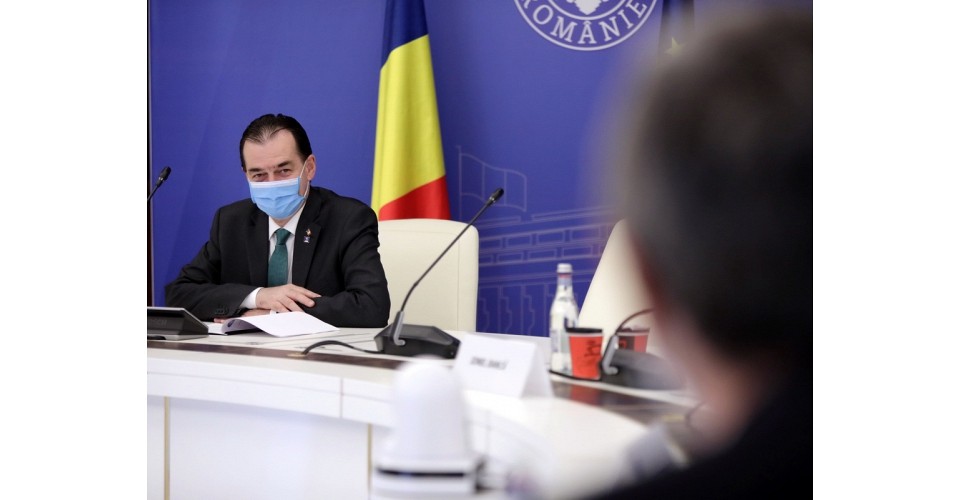Important Information
This website uses cookies. By using this website you accept the use of cookies. Learn more.

For the second edition of the AmCham CEO Forum in 2020 we have invited PM Ludovic Orban to a dialogue focused on the current situation of the Romanian economy, constraints, opportunities and priorities for the post pandemic economic recovery.
PM Orban accepted our invitation and this edition – a virtual one was held on Wed, May 20, 2020 between 16:00 – 18:00.
Minister of Public Finance, Florin Cîțu and Minister of Economy, Energy and the Business Environment, Virgil Popescu and Minister of EU Funds Marcel Boloș have also joined PM Orban in this dialogue with AmCham members.
On this occasion, members of the AmCham Board have presented the leading AmCham advocacy priorities focused on Romania’s post pandemic economic recovery and highlighted main areas of action going forward.

Opening Remarks at AmCham CEO Forum with Prime-Minister May 20, 2020 AmCham President Ionuț Simion
Dear Prime Minister Orban,
Dear Minister Cîțu,
Dear Minister Popescu,
Dear Minister Boloș,
Thank you for accepting our invitation and for taking time for this dialogue with AmCham Romania members.
I would like to thank you for the way you handled so far, this pandemic crisis. The measures taken allowed us, as a country, to get better prepared in dealing with this medical crisis.
Also, we noticed a good communication flow between you ministers and the business community; without aiming to prejudice anybody here I would mention Minister of Finance, Economy, EU Funds but also Transportation.
We are aware that your means to effectively fight the impact of COVID-19 are limited due to the procyclical fiscal policies adopted in the last 2-3 years. However, working together I believe we can maximize the impact of such measures.
I would like to begin by outlining the main macroeconomic indicators that define the context in which our businesses operate:
The Romanian economy now
Unlike the previous crisis, this economic crisis is generated by a medical crisis; nevertheless, there were signs of imbalances before, hence we need to be aware of the impact of those imbalances. We are facing a high level of uncertainty which, this time, is aggravated by the risk of other pandemic shocks in the coming months.
In this context, public money is critical for recovery and as financial resources are very limited, it is important to identify the needed financial resources, which is not simple because Romania has entered the crisis with a high budgetary deficit due to increased spending over the last years, without a corresponding increase of the budgetary revenues (collection of budget revenues remains a problem).
Consequently, financing plans need to be well thought so that they are focusing on the sectors that need support, they are avoiding misuse of resources which will do more harm as they will deepen the budget deficit without a real impact in the economy. The context of 2020 being an electoral year increases this risk unfortunately.
For our members, besides the digital transformation of our economy, two main directions are important:
Before I invite my colleagues to present the views of several industries, I will refer to the preliminary results of the 2020 AmCham Business Barometer Survey we’ve just launched two days ago. As we collect more responses, the trends may change, yet I believe that the responses so far are representative for our community.
***